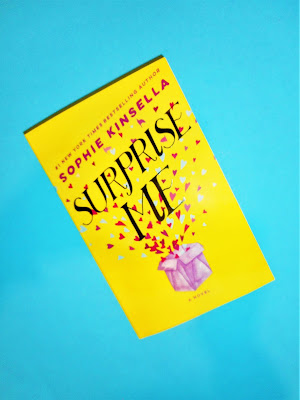Pink Lady Necklace
Top: Self Esteem, Zulily
Skirt: Stoosh, Macy's
Shoes: Payless
Bag: Liz Claiborne, JCPenney
Belt: Kohl's
Sunglasses: Relic, Kohl's
No, this isn't a tribute to that '80s sitcom about the girl robot. It's a nod to a novel about a woman in the '60s named Tiny. Yes, Tiny (short for Christina). I first became acquainted with her in Beatriz Williams's The Secret Life of Violet Grant, through the lens of her sister Vivian:
"Neither of us could politely stand Tiny, who by the grace of God had married her Harvard mark last June, and now lived in a respectably shabby house in the Back Bay with a little Boston bean in her righteous oven. God only knew how it got there!" (89)
After reading this, I thought, oh, Tiny's the stick in the mud. We're not supposed to like her. Yet, even with this understanding, I sensed something of myself in this precious paragon, and I knew that, were she real, I'd get along with her much better than I would Vivian. It seemed that Williams liked her too because she wrote a follow-up book about her, Tiny Little Thing, revealing, page after page, all the reasons why she wasn't so perfect. In it, I learned how Tiny's marriage to rising political star Franklin Hardcastle shapes her identity. Poised and polished, Tiny is the quintessential public eye wife, with never a word or a hair out of place. That is, until one night when she gets drunk at a fundraiser and tells a reporter how she really feels.
Williams tells the story from two points of view: Tiny's in 1966 and her husband's cousin's Caspian's (ugh, try saying that one five times fast) in 1964. Caspian knew Tiny before she was married, so his account is much different than the account she gives of herself. For example, it's Caspian who tells us that Tiny's a ballet dancer and that she feels the most free when she's dancing. It's also Caspian who divulges Tiny's wish to escape. He asks her, from what, exactly?, and she says:
"From what everyone else expects of me. From worrying about pleasing everyone. Playing my little role. Living up to their expectations. Letting their expectations become my expectations, until I can't tell what's real, what I really want, because it's all wrapped up in my wanting what they want." (114)
That's the root of Tiny's problems, the pressure to live up to an impossible ideal, to be someone she's not. Yet as she struggles to balance her burgeoning self-awareness with the burdens of being a candidate's wife, she finds out that some of those closest to her have been pretending to be someone else, too.
I loved this book. And not just because it made me think of that "politicians will philander" line from Baz Luhrmann's "Everybody's Free (to Wear Sunscreen)." Because it's beautifully written, and its characters are achingly real. Because it's poignant and nostalgic and perceptive. But most of all because it questions the way girls are raised. In upper class 1960s America, yes. But also in all kinds of households today.
On a lighter note, I was charmed by the fashion. Tiny wears an enviable collection of evening gowns as well as scarves, gloves, and darling day dresses - one of which is a Lilly Pulitzer shift in a green monkey print. The style is one of the best things about that tumultuous time. It inspired me to make this Pink Lady Necklace, which combines old-fashioned, ladylike elegance with bright boho accents -- a perfect combination for a '60s heroine breaking free from her well-brought-up shell.
Because freedom is worth its weight in couture.
And that, dear readers, is no small thing.



















